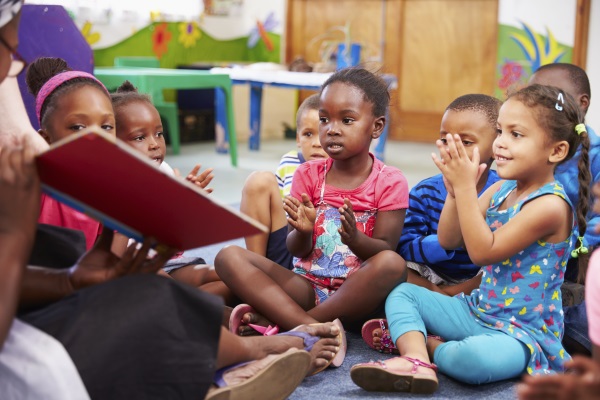What happens during a child's earliest years can have a lasting impact on their mental health and wellbeing. Charlie Roden looks at how we can help children get the best start in life.

The first five years of a child’s life are crucial for development. It is during these years that a child’s brain evolves the most, providing them with the skills needed for success throughout school and later in life.
If a child hasn't had positive experiences in their earliest years, this can have a lasting, negative impact on their health and wellbeing.
Given the increasing mental health problems amongst adolescents, we need to be more focussed on the wellbeing of the youngest members of our society.
A huge part of supporting young children’s wellbeing is ensuring that they feel loved. Although this is ultimately the role of their parents and family, early years practitioners should also play a part in this, to help with their emotional development and self-esteem.
There are plenty of ways we can make a child feel loved, such as:
Perhaps a harder challenge is to help children who may feel excluded for being ‘different’, such as children with same-sex parents who have suffered homophobic comments, or those from minority backgrounds, whose families have experienced racism.
I have heard heart-breaking stories of children refusing to play with other children simply because of the colour of their skin. How can we teach children the positive message of understanding different cultures and celebrate diversity?
A good starting point is to read a more diverse range of books to them. Children love being read to, but only being exposed to books that don’t represent their culture or identity can make them feel isolated.
Books that challenge stereotypes can encourage children to empathise and help them to relate and feel valued. Teaching children that diversity is something to be celebrated instils a positive and accepting attitude from a very young age that will (hopefully) be carried throughout school and into their adult life.
Introducing children to cultural and social issues through stories normalises these issues for them. As assistant headteacher Andrew Moffatt states in a previous blog post:
‘The beauty of using story books when you want to talk about challenging homophobia [or any other sort of discrimination] is that the focus of the lesson is put in to context, thereby normalising the issue for the children. In other words, it’s better to use a story where you can make links to the issue and relate it to the audience experience, rather than use an issue-based book… in more of a sledgehammer approach.’
See Book Riot for a list of children’s books that cover and celebrate diversity and inclusion.
The harmful effects of screen time on teenagers’ physical and mental health is currently a huge concern for parents/carers and schools.
Whilst researchers disagree over exactly how damaging too much screen time can be for adolescents, for young children, the negative effects are clear.
Since a child’s brain develops the most during the first five years of their life (it has reached 90% of an adult-sized brain by age five), anything that effects this development can have lasting consequences.
Too much screen time can prevent children from making friends
Simply put, it is during the ‘critical period’ of brain development (zero to three) where a child needs specific stimuli from the outside environment in order for their brains to develop properly. This includes movement, sensory input and emotional input.
As phones, tablets and laptops do not provide these critical experiences, too much time looking at a screen means the brain hasn’t been given the chance to develop properly. This can have permanent damage on a still-developing brain, including the ability to:
Too much screen time can also prevent children from making friends.
The frontal lobe starts to develop at this stage in a person’s life and can only develop properly with human interactions. Spending too much time on a screen, instead of with people, can prevent this development, making it harder for children to socialise.
The Supporting Wellbeing and Progress in the Early Years Conference takes place in London on Wedesday 5 June 2019. This event will provide you with the latest techniques and strategies to share with colleagues and ensure all children are in the best position before starting school.
The immediate gratification provided by a screen can also hinder the development of relationships.
With one swipe or click, children are exposed to new colours, sounds and shapes in a matter of seconds, resulting in an increase of dopamine being sent to the brain as they have been rewarded with something pleasurable. This dopamine release can be addictive, as it tells the brain that whatever it experienced is worth getting more of.
In turn, if a child gets too used to this immediate gratification, they could potentially prefer spending time on a screen as opposed to playing with or making new friends.
The Royal College of Paediatrics and Child Health has recently released a guide on screen time for children.
This may seem relatively obvious, but given the rising concerns about children and screen time, the positive impact that playing outside has on young children’s wellbeing is worth mentioning.
These are just a few things to think about. There are plenty more ways that we can promote young childrens' wellbeing.
What is most important is that we are actively supporting the positive growth of young children to ensure that they have the best start in life possible.